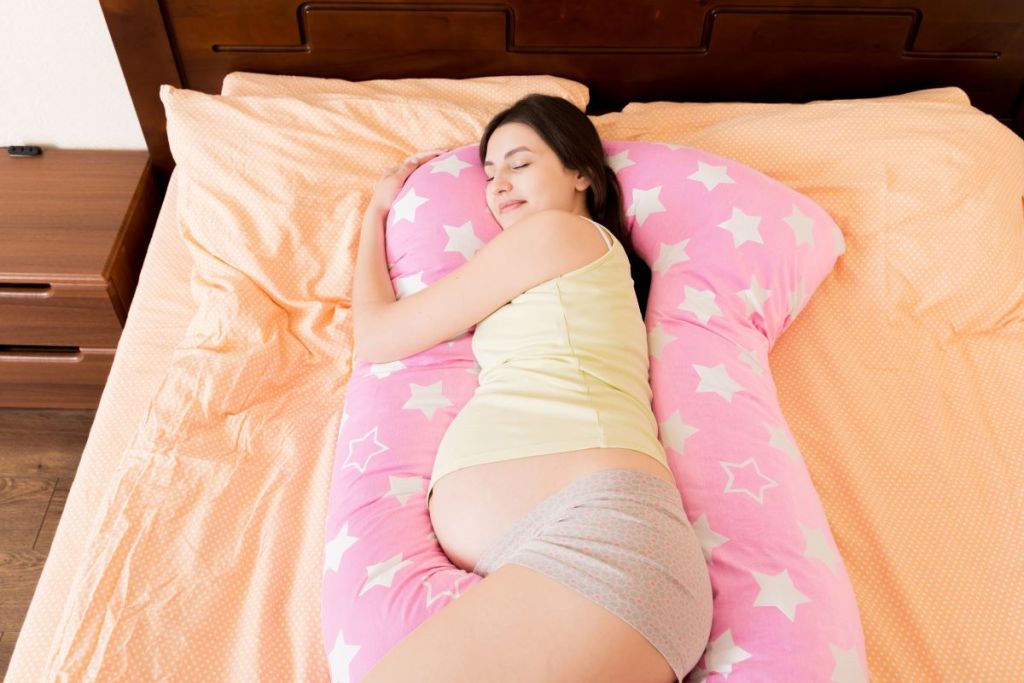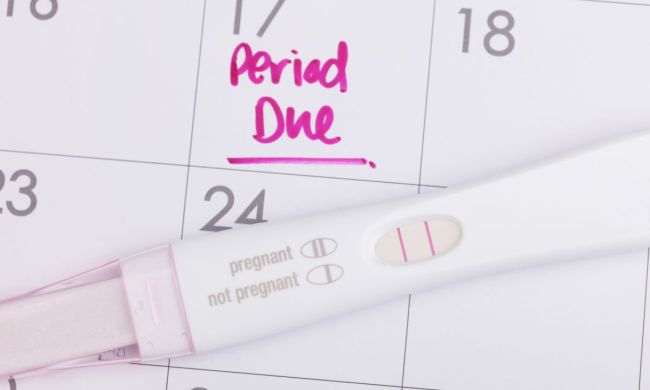Tossing and turning may not be an option at any trimester. However, finding comfortable sleep positions when pregnant can be nearly impossible. Thus, when your equilibrium is thrown off somewhat, and your back is stiff, how can you catch some much-needed Zs?
Fortunately, we’ve done our homework to find the most comfortable — and safe — positions for sleeping. While you might need to enlist the help of a body pillow or pregnancy pillow for extra support, you’ll soon find that sleeping soundly won’t be so difficult for the time being. So read on to find out how you can get a great’s night’s rest and which sleep positions to avoid and when.
Can I hurt my baby by sleeping on my right side?
According to a study published in Lancet that was conducted by a team of researchers led by Robin S. Cronin, sleeping on the right side appeared to be as harmless as sleeping on the left. However, the researchers noted some challenges in determining the increased risk of sleeping on the right side compared to the left partly due to other factors like the quality of the mother’s health and lifestyle choices (ie: smoking, diet, and so forth). Nonetheless, they did ascertain that the supine position or sleeping on one’s back carried a heavier risk of stillbirth.
Moreover, the logic behind choosing the left side over the right simply lies in the location of the large blood vessel, called the vena cava, and certain organs. The vena cava happens to be located on the right side and runs along the same path as your spine, thus circulating blood to your heart and to your baby. So, compression of that vein might slow circulation down. Also, the liver and kidneys are located in the same vicinity. Therefore, the long-held belief that sleeping on the left side is best comes from these factors.
Regardless of your preference in left or right-side sleep positions when pregnant, both are safe for the baby especially if you have the proper support for your back and stomach. Furthermore, if you have a pillow wedged between your knees, this takes the stress off your hips, thus making side sleeping more comfortable.

What happens if you accidentally sleep on your back while pregnant?
For starters, if you accidentally end up in the supine position in the middle of the night or as you’re waking up, there’s no cause for concern. Most likely, you haven’t been laying in that position for very long. Likewise, if you know that you’re going to roll onto your back early on, or you’re already accustomed to falling asleep on your back, you can place a wedge pillow behind your back, which will prevent you from lying supine and help you to stay on your side.
On the other hand, if you’re still in your first trimester, sleeping on your back is safe as noted by an article reviewed by Dr. Carolyn Kay, but once your baby bump starts growing, side sleeping will be the safest option. Plus, as your pregnancy progresses, you’ll naturally avoid sleeping on your back because of the discomfort.
What position should you not sleep in when pregnant?
As mentioned, sleeping on your back proves to be the least favorable. By doing so, you’re restricting blood flow through the main vein to the uterus and consequently to the baby. Additionally, sleeping on your stomach is not the most favorable position either, unless you’re still in the first trimester (up to the early part of the second trimester). In this case, a full body pillow helps provide support to your middle and your knees and hips and eventually “trains” you to roll onto your side.
Can I sleep on my right side while in my first trimester?
In Dr. Robert Silver’s study that was published in Obstetrics and Gynecology, sleeping on the right side up to 30 weeks didn’t prove to be a risk. And as mentioned, if you’re still sleeping on your right side in the last trimester, your baby will be fine.
Of course, there are exceptions, and in rare cases, where your doctor recommends bed rest, then you should opt for the left side.
So, the key takeaway is that the more comfortable — and safe — positions for the first trimester will be sleeping on the left or right side, sleeping face down (for the first few weeks only) and on your back (again, only for the first trimester). Another option is to use a large wedge to prop yourself up and support your back. As your pregnancy progresses, then you’ll need to sleep on either side. And rather than losing sleep over your position, you can ask your obstetrician for any clarification to put your mind at ease.



